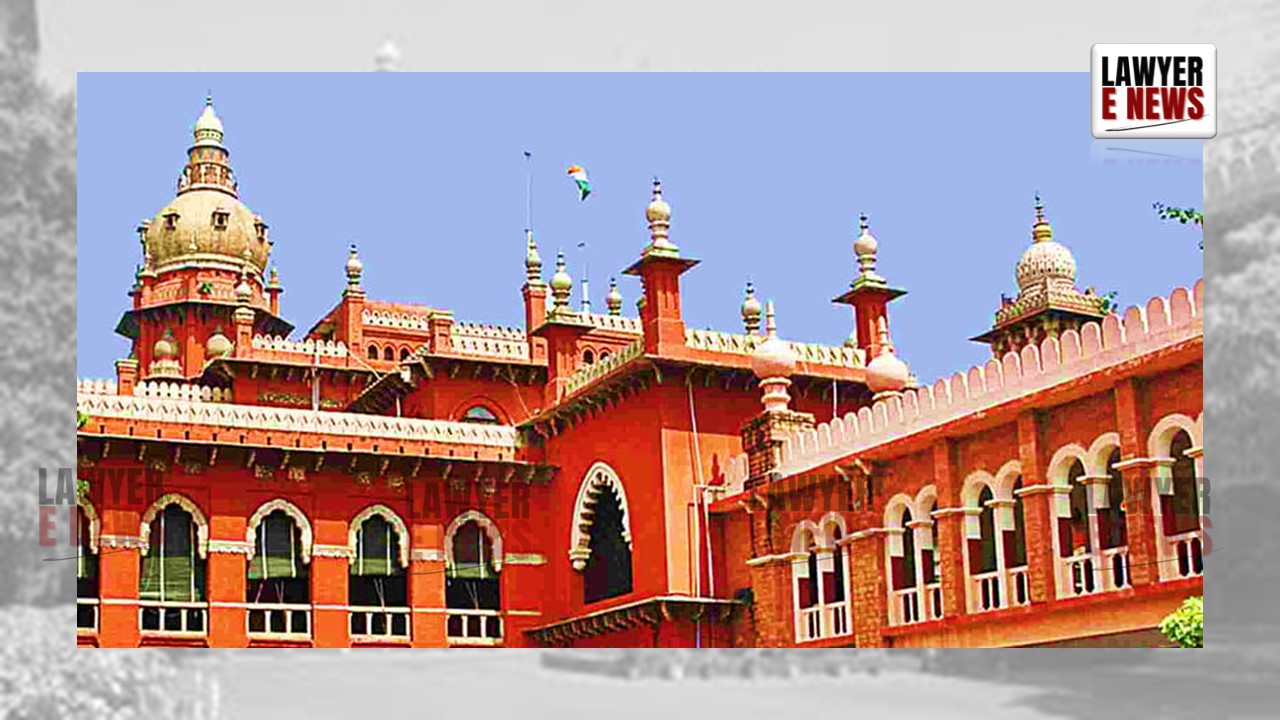-
by Admin
15 February 2026 5:35 AM



In a notable judgment, the Madras High Court has directed the Judicial Magistrate of Sathankulam to refer a theft complaint under Section 156(3) Cr.P.C. without insisting on the provision of receipts for the stolen items. This ruling by Justice B. Pugalendhi emphasizes that the absence of purchase receipts should not hinder the process of referring a legitimate complaint to the police for investigation.
The petitioner, Shanthi, filed a complaint under Section 156(3) of the Code of Criminal Procedure, seeking a preliminary inquiry into the theft of a motor pump set and wires from her agricultural land. The learned Judicial Magistrate of Sathankulam had returned her application citing several deficiencies, including the absence of a process memo, non-affixation of stamps on xerox copies, lack of documents regarding the stolen property, and an unclear prayer against all accused persons.
Shanthi claimed that she had complied with all conditions except for providing receipts for the stolen items, as she did not possess any such documentation. Despite her explanation, the Magistrate did not forward her complaint, prompting her to file a criminal original petition to the High Court.
The High Court noted that while the Magistrate’s role includes verifying whether a prima facie offense is established, the absence of receipts alone should not prevent the referral of the complaint for police inquiry. Justice Pugalendhi observed, “The motor pump set and wires have been stolen from the petitioner’s agricultural land. However, she is not having any receipts for the same. On this score alone, reference under Section 156(3) Cr.P.C. cannot be denied.”
The court underscored the importance of assessing the complaint based on its merits rather than strictly adhering to procedural requirements that could unjustly obstruct justice. The judge stated, “The learned Judicial Magistrate, Sathankulam, while dealing with an application filed under Section 156(3) Cr.P.C, has to ascertain whether prima facie offense is made out or not.”
Justice Pugalendhi emphasized that the essence of Section 156(3) Cr.P.C. is to ensure that legitimate complaints are investigated, even in the absence of formal documentation. He instructed the Magistrate to refer Shanthi’s complaint to the concerned police officer for an inquiry and to ascertain the occurrence of any offense based on the available evidence and circumstances.
“The motor pump set and wires have been stolen from the petitioner’s agricultural land. However, she is not having any receipts for the same. On this score alone, reference under Section 156(3) Cr.P.C. cannot be denied,” stated Justice B. Pugalendhi. He further added, “It can be referred to the police officer concerned for conducting an enquiry and to ascertain whether any offense has been made out and thereafter, a case shall be registered.”
The Madras High Court’s decision to allow the petition and direct the Magistrate to refer the complaint under Section 156(3) Cr.P.C. highlights the judiciary’s commitment to ensuring that procedural technicalities do not impede access to justice. This judgment sets a significant precedent for handling similar cases, reinforcing that the absence of documentation should not bar the investigation of genuine complaints.
Date of Decision: 16.07.2024
